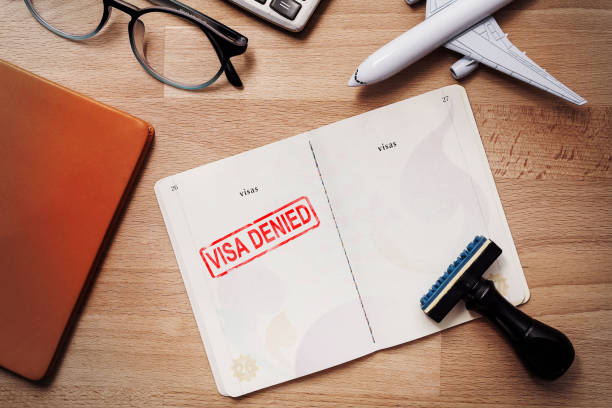In the globalized world we live in today, international interactions and transactions are more common than ever before. Whether it’s for business, travel, immigration, or diplomacy, communication across linguistic barriers is essential. When it comes to official dealings with foreign governments, embassy document translation plays a critical role. In this comprehensive article, we will delve into its definition, purpose, reasons for its necessity, and the grave implications of neglecting it.

Definition of Embassy Document Translation:
Embassy document translation refers to the process of translating official documents such as passports, visas, birth certificates, marriage certificates, academic transcripts, and legal contracts from one language to another. These translations are typically certified by professional translators or translation agencies to ensure accuracy and authenticity. The translated documents are then used for various purposes, including visa applications, legal proceedings, academic enrollment, and immigration processes.
Purpose of Embassy Document Translation:
The primary purpose of embassy document translation is to facilitate communication and understanding between individuals, businesses, or governments from different linguistic backgrounds. It enables individuals to navigate bureaucratic processes in foreign countries by providing translated versions of essential documents required for various legal, administrative, or official purposes.
Moreover, embassy document translation serves as a means of ensuring compliance with legal and regulatory requirements imposed by foreign governments. Many countries have strict rules regarding the language of official documents, especially when it comes to immigration, residency, and citizenship applications. Failure to provide translated documents in the prescribed format and language may lead to delays, rejections, or even legal repercussions.

Reasons for the Necessity of Embassy Document Translation:
Embassy document translation serves as a critical bridge between individuals, businesses, and governments from different linguistic and cultural backgrounds. Its necessity stems from various factors, each essential for ensuring effective communication, legal compliance, and access to essential services. Let’s delve deeper into each reason, accompanied by illustrative examples highlighting their significance:
1. Legal Compliance:
Foreign governments impose strict requirements regarding the language and format of official documents for legal and administrative purposes. This is particularly evident in immigration and visa applications, where accurate translation of documents such as passports, birth certificates, and marriage certificates is crucial to establish identity, familial relationships, and other pertinent information.
Example: Consider a scenario where an individual from France intends to apply for a work visa in the United States. The U.S. immigration authorities require all supporting documents, including educational certificates and employment records, to be translated into English. Without certified translations of these documents, the visa application may be rejected due to non-compliance with legal requirements.

2. Cultural Sensitivity:
Effective communication transcends linguistic barriers; it necessitates an understanding of cultural nuances and sensitivities. Embassy document translation ensures that the content of official documents is accurately conveyed in a culturally appropriate and respectful manner, thus averting potential misunderstandings or offense.
Example: In Japan, the format and tone of official correspondence differ significantly from those in Western countries. A marriage certificate translated into Japanese must adhere to cultural norms regarding formal language and respectful terminology. Failure to do so may lead to misinterpretation or unintended offense, undermining the credibility of the translated document.
3. Accuracy and Authenticity:
Official documents contain critical information that must be translated with precision to maintain their integrity and authenticity. Certified translators undergo rigorous training to ensure that translations faithfully represent the original documents, preserving their legal and evidentiary value.
Example: Consider a multinational corporation negotiating a contract with a foreign partner. The terms and conditions of the agreement, including clauses related to intellectual property rights and dispute resolution mechanisms, must be accurately translated to avoid ambiguity or misinterpretation. A mistranslation could potentially lead to legal disputes and financial liabilities for both parties involved.

4. Facilitating International Transactions:
In today’s interconnected world, businesses and individuals engage in cross-border transactions that necessitate the exchange of official documentation. Embassy document translation facilitates these transactions by enabling parties to understand and comply with the terms and conditions stipulated in contracts, agreements, or other legal instruments.

Example: A Chinese manufacturer exporting goods to Germany must provide translated product specifications, invoices, and shipping documents in compliance with German regulations. Failure to do so may result in delays at customs, rejection of shipments, or penalties for non-compliance, jeopardizing business relationships and profitability.
5. Promoting Access to Services:
For individuals migrating to or residing in a foreign country, embassy document translation is often a prerequisite for accessing essential services such as healthcare, education, employment, and social welfare. Translated documents enable authorities and service providers to verify eligibility, qualifications, and other relevant criteria.
Example: An immigrant family relocating to Canada must submit translated copies of their medical records, educational certificates, and employment history to qualify for healthcare coverage, school enrollment, and employment opportunities. Without translated documents, they may face barriers to accessing vital services and integration into the local community.
Implications of Neglecting Embassy Document Translation:
Neglecting embassy document translation can have far-reaching consequences that affect individuals, businesses, and governments on multiple levels. From legal complications to reputational damage and compromised security, the implications of overlooking the importance of accurate translation are profound. In this comprehensive exploration, we will delve deeply into each implication, providing detailed explanations and real-world examples to illustrate their significance.

1. Legal Repercussions:
One of the most immediate and severe consequences of neglecting embassy document translation is the potential for legal repercussions. Many countries have stringent requirements regarding the translation of official documents, especially for immigration, residency, and citizenship applications. Failure to provide translated documents that comply with these requirements can lead to rejection of applications, denial of entry or residency permits, or even legal proceedings.
Example:
Imagine a scenario where an individual applies for a work visa in Australia but submits untranslated or inaccurately translated educational certificates. The Australian immigration authorities reject the visa application due to non-compliance with the requirement of providing certified translations of all supporting documents. As a result, the individual is unable to work in Australia and may face deportation if they remain in the country unlawfully.

2. Administrative Delays:
Incomplete or improperly translated documents can cause significant delays in processing various applications and requests. This delay can affect a wide range of endeavors, from obtaining visas and residency permits to enrolling in educational programs or conducting business transactions across borders. Such delays can disrupt travel plans, business operations, or academic pursuits, leading to frustration and inconvenience for all parties involved.
Example:
Consider a multinational corporation that is expanding its operations into Brazil and needs to obtain work permits for its foreign employees. Due to incomplete translations of employment contracts and other supporting documents, the Brazilian immigration authorities delay the processing of work visa applications. As a result, the corporation’s plans for expansion are delayed, leading to financial losses and missed opportunities in the Brazilian market.

3. Loss of Opportunities:
Neglecting embassy document translation can result in missed opportunities for individuals, businesses, and governments alike. Whether it’s securing employment abroad, enrolling in prestigious educational institutions, or participating in international conferences and events, access to accurately translated documents is often a prerequisite for participation. Failure to provide translated documents may hinder individuals’ ability to pursue their goals and ambitions, leading to missed opportunities for personal and professional development.
Example:
An academic researcher from India is invited to present a paper at a prestigious conference in the United States. However, due to inadequate translation of their academic credentials and research publications, they are unable to obtain a visa to travel to the U.S. and participate in the conference. As a result, they miss out on the opportunity to showcase their work to an international audience and establish valuable connections in their field.

4. Damage to Reputation:
In today’s interconnected world, trust and reliability are paramount in global interactions. Individuals and businesses that fail to adhere to linguistic and cultural requirements in official dealings may suffer damage to their reputation and credibility. This can have long-term consequences on their ability to engage in future international collaborations or transactions, as trust is essential for building successful relationships with partners, clients, and stakeholders.
Example:
A law firm in the United Kingdom represents a multinational corporation in negotiations with a Japanese counterpart. However, due to inadequate translation of legal documents and miscommunication regarding contractual terms, the negotiations break down, and the Japanese counterpart accuses the UK law firm of unprofessionalism and incompetence. As a result, the law firm’s reputation is tarnished, and they may lose potential clients and business opportunities in the Japanese market.
5. Compromised Security:
Perhaps the most alarming implication of neglecting embassy document translation is the risk of compromising national security or public safety. In cases where translated documents are inaccurate or falsified, there is a potential threat to public health, law enforcement efforts, or national security. For example, fraudulent translations of medical records or criminal history reports could pose a significant risk if not detected and addressed promptly.
Example:
A foreign national applies for a visa to travel to the United States but submits a falsified translation of their medical records, concealing a history of contagious disease. If the fraudulent translation goes undetected, the individual could potentially spread the disease upon entering the country, posing a serious public health risk to the population. Similarly, inaccurate translations of criminal history reports could result in individuals with criminal records gaining entry to the country, jeopardizing public safety and security.
In conclusion, the gravity of neglecting embassy document translation cannot be overstated, as it can profoundly impact individuals, businesses, and governments across various spheres. Legal entanglements, administrative bottlenecks, missed opportunities, reputational harm, and security compromises are just a few of the potential repercussions stemming from inadequate translation practices.
Amid such complexities, the choice of a reliable and reputable translation service provider like GoodWill Language Solutions becomes paramount. GoodWill’s commitment to accuracy, professionalism, and timeliness ensures that translated documents meet stringent legal requirements, facilitate seamless interactions, and uphold the highest standards of security and confidentiality.
By choosing GoodWill Language Solutions, individuals, businesses, and governments can rest assured that their translation needs are in capable hands. With a track record of excellence and a team of skilled linguists, GoodWill not only meets but exceeds expectations, safeguarding legal compliance, fostering smooth communication, and bolstering trust in an increasingly interconnected world.
In essence, the decision to entrust embassy document translation to GoodWill Language Solutions is not just a choice—it’s a strategic investment in ensuring optimal outcomes, safeguarding interests, and navigating the complexities of global communication with confidence and ease.
You really make it appear really easy together with your presentation however I find this matter to be really something which I
feel I’d never understand. It seems too complicated and very huge for me.
I’m taking a look ahead on your subsequent publish, I’ll attempt to get the
hang of it! Escape room lista